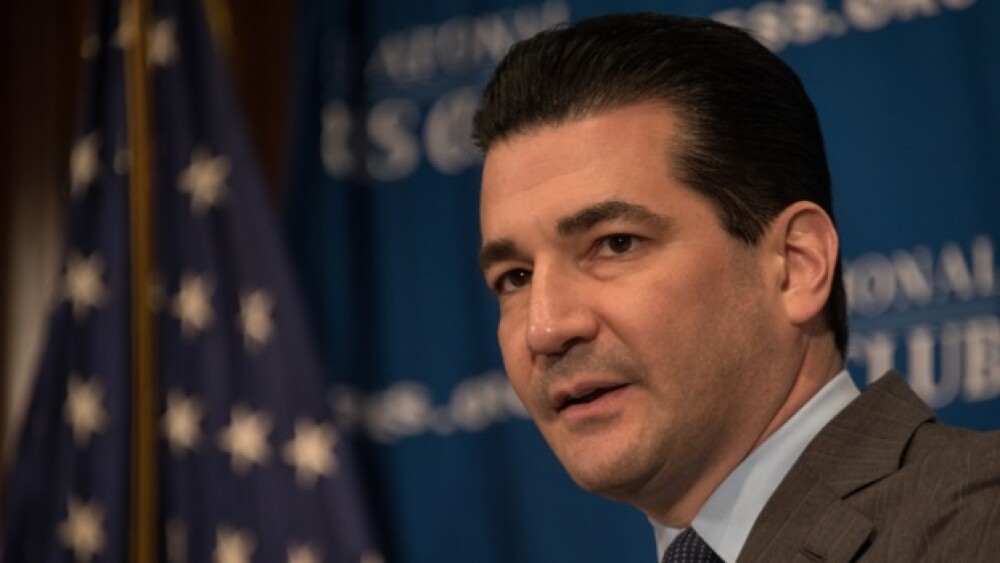As the 2018 BIO International Convention wraps up in Boston today, it kicked off with a fireside chat with Dr. Scott Gottlieb, Commissioner of the U.S. Food and Drug Administration (FDA).
Dr. Scott Gottlieb / Albert H. Teich / Shutterstock
As the 2018 BIO International Convention wraps up in Boston today, it kicked off with a fireside chat with Dr. Scott Gottlieb, Commissioner of the U.S. Food and Drug Administration (FDA). Gottlieb was interviewed by Jim Greenwood, president and chief executive officer of BIO.
In a wide-ranging discussion, Gottlieb said he expects the FDA to approve 40 gene therapies by 2022 and might see cures for diseases like sickle cell anemia within 10 years. He also noted that there are complexities in gene therapy that are related to product issues as compared to clinical issues, which is requiring the agency to approach approvals differently. Gottlieb indicated that agency will publish six guidance documents regarding gene therapies soon.
In terms of drug pricing, Gottlieb said there should be a balance between access and innovation.
Another hot topic they touched on was patient-focused reimbursement. This might be more appropriately called “pay-per-results,” and has been an area of interest in healthcare since at least 2011, if not longer. One example is Novartis’ Kymriah, which has a U.S. price tag of about $475,000 and a UK price tag of about $700,000. But Novartis has put into place a sort of “money-back guarantee,” where if patients do not respond to the treatment in the first month, Novartis will refund the money.
Gottlieb told Greenwood that the FDA is working on a formal structure to solicit patient input, which will allow the agency to develop a guidance framework.
And it seems like there can’t be any discussion of the drug industry these days without touching on the opioid epidemic. Gottlieb indicated he didn’t want a system that creates obstacles for patients who really do need opioids, but the agency is looking at getting tougher on online sales and working with reputable online sites. This would require the use of both civil and criminal functions on any new actions.
An individual in the audience asked what the clinically significant endpoint for a new drug that prevents addiction versus treating existing addiction would be. Gottlieb responded that it would qualify for breakthrough therapy designation and would receive a high level of attention from the agency’s reviewers. Also, clinical efficacy could be established with a small sampling of targeted patients.
As the day proceeds, Sue Desmond-Hellman of the Bill & Melinda Gates Foundation and Penny Heaton of the Gates MRI would have a fireside chat, and there will be a “start-up stadium” event titled, “Empowering the Cutting-Edge Companies of Tomorrow, Today.”
The afternoon’s Super Session is headlined, “Scientific American WorldVIEW: Biotechnology’s Promise in a Changing Landscape.”
In a statement, Penny Heaton said, “As we enter the last day of Convention programming, I feel more motivated than ever by the biotech industry’s sense of urgency in developing and delivering innovative, life-saving cures and vaccines. As an organization, we’re working to ensure that life-saving vaccines are developed for those who need it most. I’m especially looking forward to advancing the discussion about how we leverage translational medicine, during my fireside chat today.”





